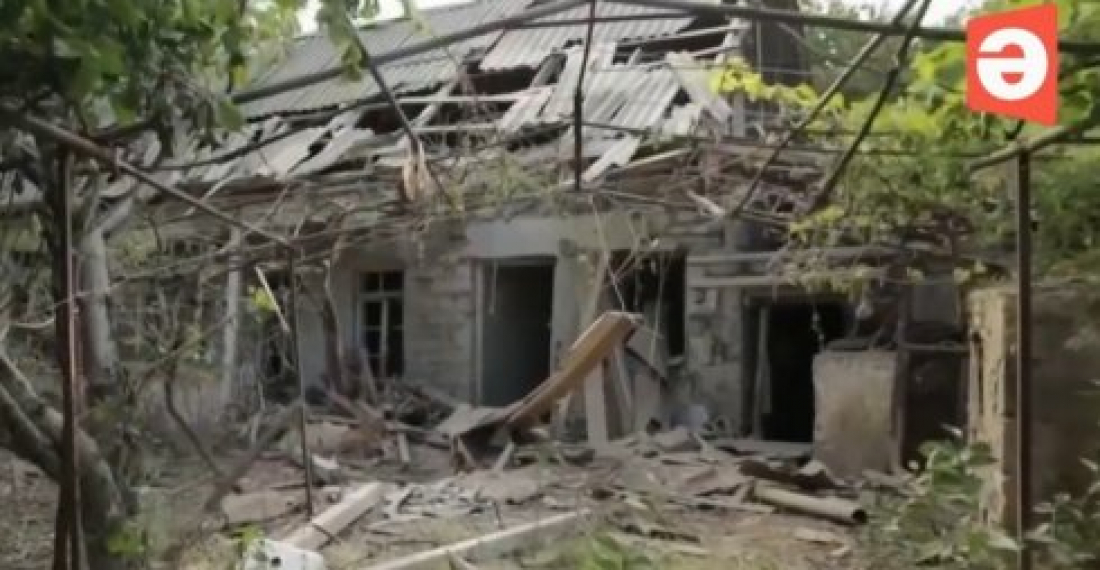This is an editorial, prepared by the editorial team of commonspace.eu
The Caucasus region has been plunged back into war. From yesterday morning fighting has been taking place between Armenian and Azerbaijani forces across the line of contact in the Nagorno-Karabakh conflict zone.
The last twenty four hours have shown us already that this is not some localised skirmish but has all the hallmarks of war. The number of casualties, both civilian and military, is likely to already be in triple figures, and will inevitably increase. All sorts of weaponry has already been used. And the rhetoric from both sides is highly belligerent.
related content: Heavy fighting erupts in Karabakh
This outbreak of violence in the long running dispute between Armenians and Azerbaijanis on Nagorno-Karabakh does not come as a surprise. Only the blind would not have seen it coming. The summer has been tense, more so since the 12 July escalations. There were daily breeches of the cease fire, and the propaganda war had reached new heights. With the peace process stalled, the region flooded with modern lethal weaponary, there appeared only one direction to go.
There is now an urgent need to stop all hostilities and return to the negotiating table for comprehensive and meaningful negotiations conducted with a sense of urgency. Both sides, for different reasons, may still think that fighting this out is the right thing to do. They are wrong. War is never the solution. It brings death and destruction, and often sows the seeds for the next conflict. However as long as there is no solution to the Karabakh conflict war will always be a tempting alternative.
The Karabakh conflict is causing great harm to the entire Caucasus region, obstructing its development. The region has had more than its share of conflict in the last three decades: the secessionist wars in Abkhazia, South Ossetia and Nagorno-Karabakh in the 1990s, the Chechen Wars in the North Caucasus, the Georgia-Russia War in 2008 - and this not to mention many incidents and escalations as unresolved disputes fester and develop their own dynamic. Conflicts such as this one between Armenians and Azerbaijanis are draining energy, resources and potential from the region. Despite being rich in agriculture and natural resources, strategically placed to provide connectivity between continents, endowed with beauty to match any tourist spot, and teeming with young, talented and creative people, the Caucasus region lags behind and seems unable to take off. The fighting in Karabakh will once more set the region back, with impact beyond the current warzone to the rest of Armenia and Azerbaijan, and also to Georgia and beyond.
For ten years, commonspace.eu has been calling for an alternative to war in Nagorno-Karabakh and the entire region, and we have urged leaders and citizens alike to commit genuinely and comprehensively to peaceful solution of disputes. We do so again today.
The international community has a role to play, but must first get its act together. Regardless of the mantra of support for the OSCE Minsk Process, repeated ad nauseam by statements from the Chancelleries of the world in the last twenty four hours, it should now be obvious to all that something else is required - both to end the current crisis and to avoid a repetition in a few months time. Despite the fact that the global and European security systems are hardly functioning as they should at the moment, the diplomatic capacity to engage meaningfully to resolving this conflict exists. It is now time to be creative and resolute. Otherwise this war, may drag on for a while, and may drag in outside elements that will make this conflict even more difficult to untangle.
source: This is an editorial prepared by the editorial team of commonspace.eu.
photo: Civilian houses destroyed during fighting in the Nagorno-Karabakh conflict zone on Sunday 27 September 2020 (screen grab from footage on Maestro TV, Tbilisi)







